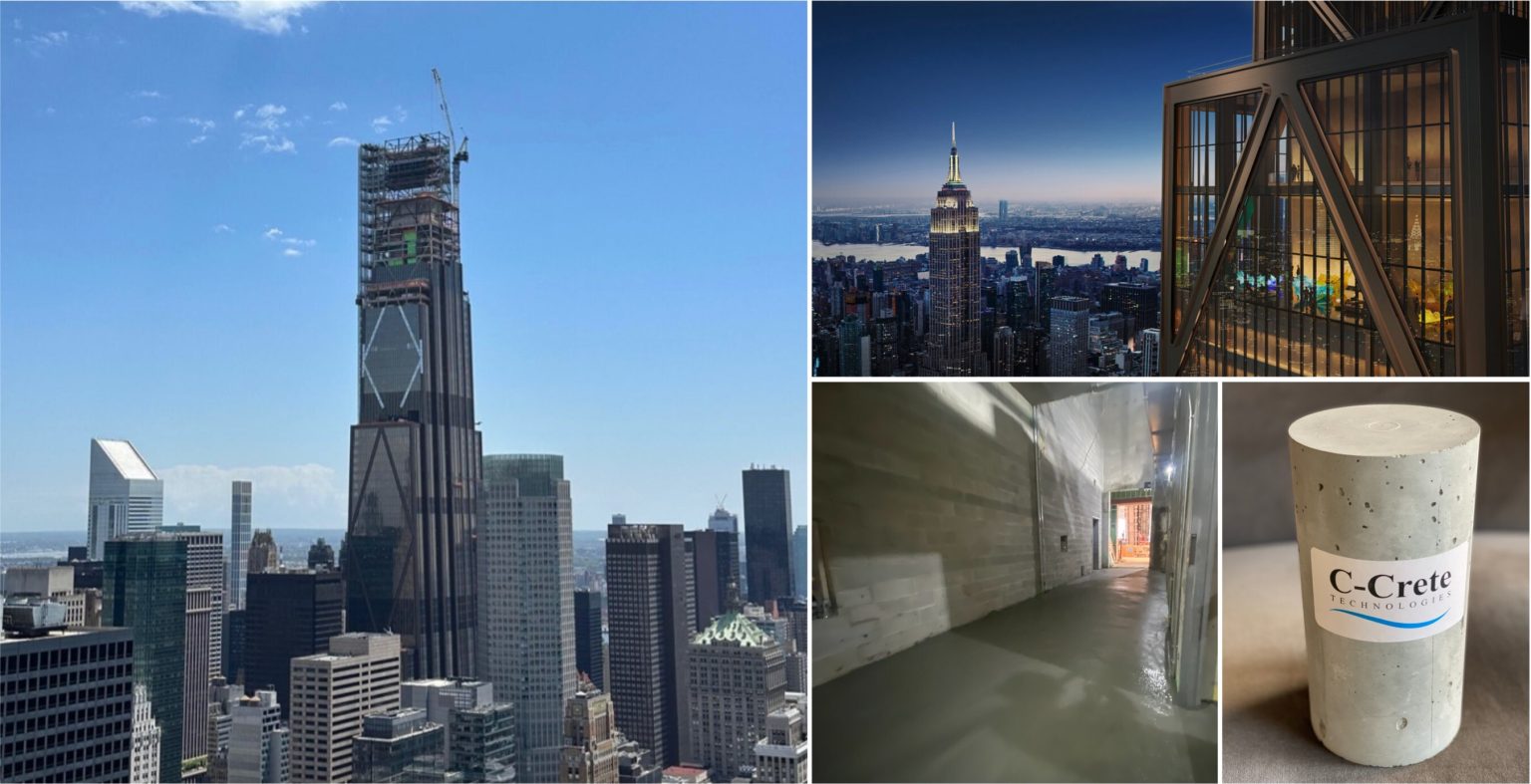C-Crete Technologies has achieved a groundbreaking milestone in the construction industry by pouring the world’s first granite-based concrete, entirely free of Portland cement and CO2 emissions. This innovative approach to concrete production represents a significant step toward sustainable building materials, addressing the urgent need to reduce carbon footprints in construction.
The Historic Pour at 270 Park Avenue
On July 8, 2024, C-Crete Technologies executed this historic pour at 270 Park Avenue in Manhattan, which will serve as JPMorgan Chase’s new global headquarters. Designed by the esteemed architectural firm Foster + Partners and engineered by Severud Associates Consulting Engineers, the pour involved a 12 cubic yard slab of granite concrete intended for a topping slab located in the upper lobby of the supertall structure. A supertall is defined as a skyscraper reaching heights between 1,000 and 2,000 feet, and this project exemplifies modern architectural innovation.
Why Granite Concrete?
The granite concrete marks a departure from traditional concrete production methods that heavily rely on Portland cement, which accounts for approximately 8% of global CO2 emissions. Granite, a non-carbonate rock, consists primarily of silicon, aluminum, and calcium—elements abundant in the Earth’s crust. This composition not only offers an alternative to limestone but also ensures that cement binders made from granite, zeolite, and basalt emit no CO2 during manufacturing.
Performance and Cost-Effectiveness
C-Crete’s granite-based concrete demonstrates impressive mechanical properties, showing a compressive strength exceeding 5,000 psi. This performance matches or surpasses that of traditional Portland cement concrete, maintaining pumpability, workability, and surface finish while adhering to ASTM International standards. Remarkably, it achieves cost parity with conventional concrete, making it a viable option for builders seeking sustainable solutions without compromising on quality or expense.
Environmental Impact
The introduction of granite-based concrete is pivotal for the construction industry, which has traditionally relied on carbon-heavy limestone-based concrete. This new material aids in significantly reducing environmental impact, aligning with global efforts to combat climate change. By replacing Portland cement with granite, C-Crete Technologies is paving the way for a future where infrastructure materials contribute to rather than detract from ecological sustainability.
Commitment to Innovation
Conclusion
The pouring of the world’s first granite-based concrete at Manhattan’s 270 Park Avenue is a monumental achievement for C-Crete Technologies and the construction industry as a whole. This innovative material not only signifies a major advancement in sustainable building practices but also highlights the importance of reducing carbon emissions in infrastructure development. As the industry moves forward, C-Crete’s granite concrete sets a new standard for environmentally friendly construction, demonstrating that sustainability and quality can go hand in hand.
